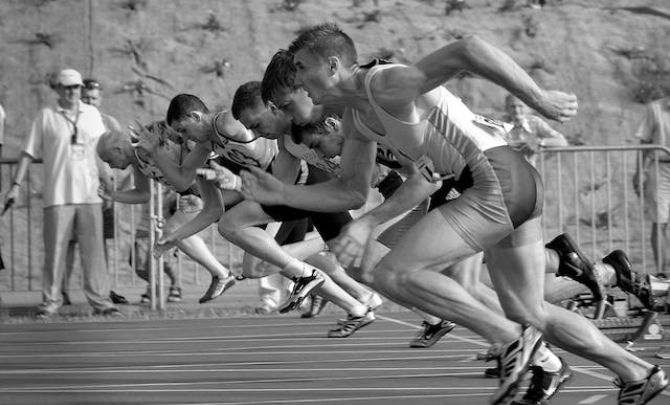The pursuit of peak physical performance has led many athletes down controversial paths, with one of the most contentious being the use of steroids for muscle gain. Steroids, or anabolic-androgenic steroids (AAS), are synthetic substances that mimic the effects of testosterone, promoting muscle growth and enhancing athletic performance.
This article aims to delve into the complex world of steroids in sports, exploring the reasons behind their use, the potential risks and consequences, and the ongoing debate surrounding their place in the realm of competitive athletics.
Reasons Behind Steroid Use in Sports:
Athletes may turn to steroids for various reasons, driven by the desire to gain a competitive edge, enhance physical prowess, and accelerate muscle development. The primary motivation often lies in the pursuit of improved strength, speed, and overall performance. In a hyper-competitive sports landscape, where milliseconds and millimeters can make a significant difference, the temptation to use performance-enhancing substances like steroids is considerable.
Moreover, the pressure to meet unrealistic physical standards set by professional sports organizations, sponsors, and fans can create a culture that pushes athletes towards the use of steroids. The allure of achieving extraordinary feats and breaking records may overshadow the potential health risks associated with these substances, leading athletes to make choices that compromise their well-being.
Risks and Consequences:
While steroids can indeed contribute to rapid muscle gain and enhanced performance, the potential risks and consequences cannot be understated. Short-term effects may include increased aggression, mood swings, and liver damage, while long-term use can lead to severe health issues such as cardiovascular problems, kidney damage, and hormonal imbalances.
Beyond the physiological risks, athletes face severe consequences when caught using steroids in sports. Most professional sports organizations have strict anti-doping policies, and violators can face suspensions, fines, and the tarnishing of their professional reputations. The use of steroids undermines the spirit of fair competition and poses ethical questions about the authenticity of athletic achievements.
The Ongoing Debate:
The debate surrounding steroids in sports is multifaceted, involving discussions on ethics, fairness, and the physical and mental well-being of athletes. Some argue that the use of steroids levels the playing field, as athletes may feel compelled to use them to remain competitive in an environment where others are doing the same. Others maintain that the use of performance-enhancing substances creates an uneven playing field, eroding the integrity of sports and compromising the health of athletes.
Critics of steroid use in sports call for stricter regulations, more rigorous testing, and harsher penalties to deter athletes from resorting to these substances. Proponents, on the other hand, advocate for a reevaluation of the rules, suggesting that controlled and monitored use of steroids under medical supervision could be a viable option.
The Role of Education and Prevention:
Addressing the issue of steroids in sports requires a multifaceted approach that goes beyond punitive measures. Education and prevention programs are crucial to raising awareness among athletes about the risks associated with steroid use and promoting alternative, healthier methods of achieving athletic excellence.
Sports organizations, coaches, and medical professionals play pivotal roles in fostering a culture that prioritizes the well-being of athletes over the pursuit of immediate success. Emphasizing the importance of clean competition, fair play, and the long-term consequences of steroid use can contribute to a shift in attitudes within the sports community.
Social and Psychological Impact:
In addition to the physical risks and consequences, the use of steroids in sports also has significant social and psychological implications for athletes. The pressure to conform to societal expectations of the ideal physique can lead to body image issues, self-esteem struggles, and mental health challenges among athletes. The constant pursuit of an artificially enhanced physique can create an unhealthy cycle of dependency on performance-enhancing substances, contributing to a distorted perception of self-worth tied to physical appearance.
Furthermore, the revelation of steroid use can result in public scrutiny, damaged reputations, and strained relationships within the sports community.
Athletes who succumb to the temptation of steroids may find themselves grappling with the aftermath of the choices they made, both in their professional careers and personal lives. The social and psychological toll underscores the need for comprehensive support systems within the sports community to address the root causes and repercussions of steroid use, fostering an environment that prioritizes the holistic well-being of athletes.
Conclusion:
The use of steroids in sports for muscle gain is a complex and controversial issue that extends beyond the realm of athletics. It involves ethical considerations, health risks, and questions about the authenticity of achievements. Check out the list of natural alternatives to legal steroids.
As the debate continues, striking a balance between maintaining sports’ integrity and safeguarding athletes’ well-being is paramount. Through education, prevention, and ongoing dialogue, the sports community can work towards fostering an environment that values clean competition, fair play, and the pursuit of excellence without compromising long-term health.
